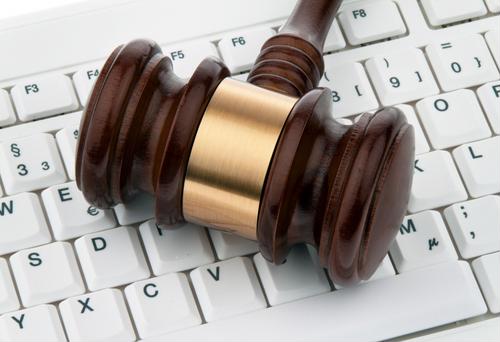
Are law firms ready for an IoT world?
By Max BurkhalterApril 9, 2018
The common mental image of a legal office may not be technologically progressive. When many people visualize lawyers, they think of suitcases and they imagine long hours spent in cramped offices filled with filing cabinets. Law is seen as a very paper-intensive industry. And in part, this is true. Regulations for data governance purposes have mandated that lawyers and other legal professionals keep at least some vital data on paper.
However, the legal sector doesn't exist outside of time. The internet of things has come to lawyers. It is sweeping through legal firms across the U.S. A double-edged sword, IoT enables new productivity and even as it brings challenges. As legal staff upgrade their technology, they should ensure that they are doing so in a smart, comprehensive manner.
It is not enough to fill a room with high-tech equipment. All staff will need to be trained to properly handle the new hardware. Even then, technology will only really be used if it is a tangible improvement over what came before.

While some paper storage may need to be retained, it will be more convenient and secure for legal offices to digitize their workflows.
A digital office everywhere
The most basic but impactful aspect of an IoT law firm will be the remote empowerment. Employees no longer need to commute to a cramped office space to process cases and client files. A lawyer can work in his or her home, in a cafe, in a public space or any other area that is deemed secure. While a laptop may be the traditional method of performing portable work, smartphones and tablets have also turned into professional devices.
While these machines enable increased productivity, the benefits are far from a sure thing. Equipping employees with smartphones doesn't immediately translate to improved performance. In order for that to happen, the device must have a strong, consistent network connection. Law firms can boost their private network signal, allowing nearby staff to work without having to make the commute.
Another option is to simply take advantage of home or other personal networks. This option, while initially cheaper, is more dangerous. There is no guarantee of proper cybersecurity protections in any outside network. Open WiFi connections, which are prominent in cafes and restaurants, are especially vulnerable.
Law firms already have an image problem when it comes to adhering to information security standards. A recent LogicForce survey of legal agencies found that only 23 percent of respondents had proper cybersecurity insurance policies. That same study concluded that every single one of its respondents had been targeted by malicious third parties at some point during 2016-2017. Less than half were aware of this.
While IoT devices let lawyers work from everywhere, the benefit comes at the expense of security. Given that legal documents are among the most confidential sources of information around and their unwarranted public release can lead to loss of license and firm, legal businesses need to be very careful with remote work expansion.
"5G wireless will be needed to utilize AR and virtual reality machines in many real world environments."
Augmenting workflow with wearables
The National Law Review recently highlighted how new technology will soon revolutionize law firms. One of the biggest innovations discussed was augmented reality, or superimposing data onto the actual world.
With this hardware, lawyers could recap cases and practice in a courtroom without once having to look down for notes. The information would be overlayed onto a headset, which could be updated in real time by support staff. This would allow lawyers to more closely study witness and jury reaction and give arguments with the most recent concrete information.
However, these devices will take a lot of bandwidth to operate seamlessly. According to a Qualcomm report, 5G wireless will be needed to effectively utilize AR and virtual reality machines in many real-world environments.
At Perle, we understand the resource restrictions that can slow network improvements, especially in legal firms with smaller staffs. However, we pride ourselves on our ability to provide expertise and hardware to organizations of every size. New technology will allow tremendous innovation within law offices. Apart from those outlined above, developments such as artificial intelligence can help automate slow, time-consuming processes like billing.
However, before any meaningful improvement can be made, legal practices need an informed plan on how to effectively upgrade hardware. Contact Perle today to learn how we can help bring your law firm securely into streamlined 21st century business practices.



